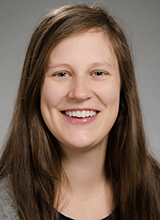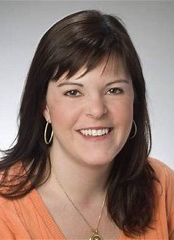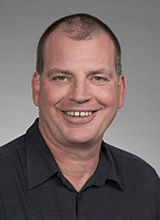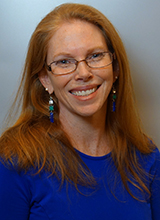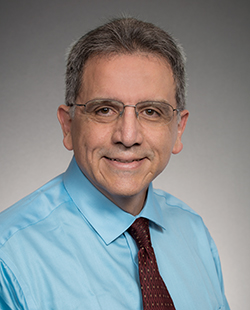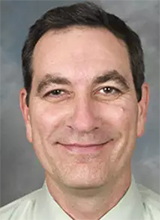Dr. Megan Goldenshteyn works as a licensed psychologist at the Institute on Human Development and Disability (IHDD) in the Child Development Clinic, Cardiac Neurodevelopment Clinic, Down Syndrome Specialty Clinic, and the Infant Development Follow-up Clinic. Dr. Goldenshteyn conducts psychological and developmental evaluations and supervises the psychology trainees, including the postdoctoral fellow and residents.
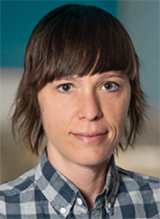
I am a child and adolescent psychiatrist at Seattle Children’s Hospital and faculty member at the University of Washington Medicine. My SCH practice locations include the Gender Clinic (Adolescent Medicine), Outpatient Psychiatry Clinic, Autism Center, and the inpatient unit- Psychiatry and Behavioral Medicine Unit (PBMU). I believe in delivering compassionate, evidence-based care in supporting patients and their families. My approach is both comprehensive and patient-centered, as it is important to consider the needs of the individual while also appreciating societal and cultural context. I specialize in working with diverse patient populations with various marginalized identities, such as those who identify as LGBTQ, gender diverse, and/or neurodiverse. I also work closely with the Adolescent Medicine Gender Clinic in supporting any mental health needs of transgender/gender diverse youth and their families. I also collaborate with colleagues in specialty medical clinics to coordinate care of medically complex patients. Additionally, I serve as a consultant with various school programs to support mental health initiatives and advocacy efforts.
Academically, I am involved with several initiatives both locally and nationally, particularly those that work to promote diversity and equity. I serve on committees supporting the SCH/UW CAP Fellowship Program, educating trainees and students through direct clinical supervision as well as with lectures and discussions. On a national level, I serve on the Sexual Orientation and Gender Identity Issues Committee (SOGIIC) for the American Academy of Child and Adolescent Psychiatry (AACAP). My clinical research focuses on finding strategies to better support the mental health and well-being of patients and families who are LGBTQ+. Additionally, I work on studies that explore the intersection between gender diversity and neuro diversity/autism spectrum.
Personal Statement
I am a Professor in the Division of Child Psychiatry, Department of Psychiatry and Behavioral Sciences, at the University of Washington, and the Medical Director of Child Study and Treatment Center, the State Hospital for children and adolescents in Washington State. My primary research focus addresses the genetics of neuropsychiatric disorders. Our research supports that a substantial portion of neuropsychiatric disease, including schizophrenia and autism, stems from individually rare deleterious mutations in genes important for brain development. My clinical research addresses the diagnosis and treatment of early-onset psychotic illnesses. I authored the American Academy of Child and Adolescent Psychiatry’s diagnostic and treatment guidelines for schizophrenia and bipolar disorder.
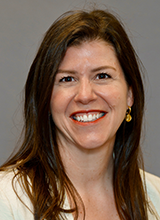
Personal Statement
My primary research and clinical interests are in the diagnosis and etiology of autism. I am passionate about teaching and training in autism and developmental disabilities, and improving access to care and building community capacity for this population. I am the director of the Clinical Training Unit at the Institute on Human Development and Disability (IHDD), and direct the UW Leadership Education in Neurodevelopmental and related Disabilities (LEND) program. I am also the track coordinator for the Autism and Developmental Disabilities Psychology Internship training program and an attending psychologist at the Seattle Children’s Autism Center where I conduct diagnostic evaluations for autism and supervise a variety of trainees. I am investigating various methods for diagnosis in an effort to streamline the process and decrease wait times for an initial diagnostic evaluation for autism. I am involved in implementing and evaluating several Project ECHO programs at IHDD with primary care providers in Washington State, with a goal of improving access to autism-related care closer to home. In the past, I was part of research examining the genetic landscape of autism in order to create meaningful subtypes of the disorder, with a hope of individualizing treatments for people with autism in the future.
Personal Statement
My research focuses on understanding the development of neural circuits that contributing to and underlie social development. Our lab uses a number of different tools: primarily electroencephalography (EEG) and event-related potentials (ERPs), but also eye tracking, cardiophysiology (EKG), neuroimaging, and behavioral measures to study how infants, children, and adults perceive, attend and learn about their social environment. Our projects also focus on the development and validation of biomarkers that may be used to understand the course of development and treatment response in children with disruption in social and communication function such as autism spectrum disorder, 16p11.2 deletion syndrome, and other neurodevelopmental disorders.
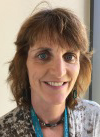
Personal Statement
I am a child and adolescent psychiatrist with experience in delivering guideline-based care for child and adolescent psychiatric disorders. I am the Medical Director of the Outpatient Psychiatry Clinics at Seattle Children’s, and have experience with training of staff to deliver guideline-based care. I also have health services training, including having obtained a Master of Public Health (MPH) in Health Services and participation in a Primary Care-Psychiatry Research Fellowship funded by the National Institutes of Health.
My clinical work includes treatment of outpatients and inpatients with a variety of mental health needs, and I provide telepsychiatry in our outpatient clinics. I have experience with collaboration with primary care providers to deliver care to pediatric patients, including serving as a consulting psychiatrist on the Partnership Access Line, which provides psychiatric consultation regarding mental health assessment and treatment to pediatricians and other primary care physicians throughout the state of Washington. I have expertise in the treatment of common mental health problems in a pediatric population.
My research has focused on mental health care for common psychiatric illnesses including depression and ADHD, and has included utilization of collaborative models of care and testing of interventions for youth with psychiatric diagnoses. I have been a co-investigator, with R01 PI Kathleen Myers, MD, for a study of guideline-based care provided by telepsychiatry for youth in rural communities with a diagnosis of Attention Deficit Hyperactivity Disorder.
